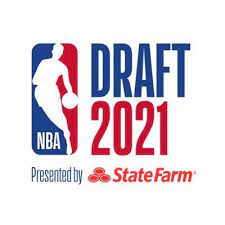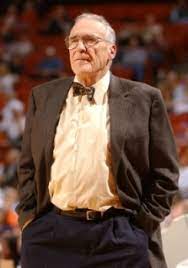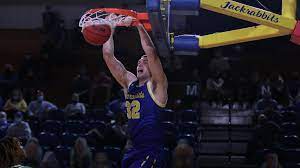There are not a lot of coaches who both start and finish their career as an assistant while also having success as a head coach at multiple schools but that is exactly what Bruce Parkhill did. He began his career as an assistant at William & Mary, then had winning records as a head coach at William & Mary/Penn State before wrapping up his career as an assistant at Ohio State. He was named conference COY with the Tribe/Nittany Lions and made 6 postseason appearances from 1983-1995. HoopsHD’s Jon Teitel got to chat with Bruce about having a famous basketball brother and upsetting Dean Smith. Today is Bruce’s 72nd birthday so let us be the 1st to wish him a happy 1!

In 1977 in your 1st year as head coach at William & Mary you had a 3-PT win over 2nd-ranked UNC in Williamsburg: how were you able to pull off the upset against Dean Smith, and what was the emotion like in John Kratzer’s 1st game back after missing the previous year due to his battle with cancer? The UNC game is hard to put into words. The atmosphere was unreal and enhanced by the fact that Kratzer was back with us (although he could not play): he was such a special person and we all loved him so much. We had a remarkable group of guys on that team: there were no ego issues. They were good players who were truly unselfish and enjoyed playing as a team. John Lowenhaupt, Mike Enoch, Jack Arbogast, Skip Parnell, Dan Monckton, Ted O’Gorman, Rocky Copley, Billy Harrington, Mark Risinger, Scott Whitley, Tim Wagner, Guy Courage, Bobby Boyd, and George Melton gave the Tribe Nation a night that will never be forgotten! UNC was obviously a great team with 1 of the all-time great coaches in Dean Smith. They jumped on us early but our guys hung tough and got through the Heels’ early spurt. We went up by double figures in the 2nd half before Phil Ford took the game over and we had to hang on to win. The place went absolutely bonkers! My most memorable moment was when I got to the hallway outside our locker room and saw John surrounded by the entire team getting a “team hug”. By the way, we had to leave early the next morning to fly to Provo to play in BYU’s tournament. The next 2 seasons were rebuilding years, then we got back on track with help from guys like Whitley, Wagner, Courage, Harrington, Risinger, Billy Barnes, Rich Veres, Dale Moats, Kenny Bowen, Doug Myers, and Herb Harris. We had some really great wins during these 2 seasons: Virginia Tech, South Carolina, Temple, and a win over Auburn when they had Charles Barkley.
In the 1983 ECAC tourney final Derek Steele made a 3-PT play with 4 seconds left in a 3-PT win by James Madison: where does that rank among the most devastating losses of your career? My last year at William & Mary was really special. We had a very good team with a nice mix of talent/experience/leadership. Mike Strayhorn, Brant Weidner, Keith Ceiplicki, Tony Traver, Kevin Richardson, Scott Coval, Matt Brooks, Richie Cooper, Tommy Lamb, and Gary Bland gave us a good team with some quality depth. We had some close non-conference road losses to West Virginia, Temple, Maryland, and Duke, as well as a great win over a ranked Wake Forest team. 6 of our 8 losses that year were by 5 or fewer PTS and we were 1 of 3 D-1 teams to go undefeated in league play. We got to the finals of the conference tourney and lost to JMU in the final seconds. We were really disappointed due to the fact that we did not feel that we would get an NCAA bid even though we thought we belonged: back then there were only 52 teams selected for the NCAA tourney.
What are your memories of the 1983 NIT (a 6-PT loss to Virginia Tech)? Getting an NIT bid was significant because it was William & Mary’s 1st-ever postseason bid. We played at Virginia Tech when they had Dell Curry and lost in a decent game. I think our guys felt pretty good about accomplishing some things that were “firsts” in school history (undefeated in conference play, NIT bid, etc.).
In the 1990 NIT as head coach at Penn State tourney MVP Scott Draud scored 20 PTS (including 5 threes) in a win by eventual champion Vanderbilt: how close did you come to winning it all? My 1st few years at Penn State were very difficult: every time we felt that we were making progress we would have numerous injury issues. When we finally got the program headed in the right direction we had a group of great guys who were not afraid of the challenge. They were good players who were determined to succeed: those guys took a chance to come to Penn State to try to build a basketball program. They have had many good players/coaches throughout their basketball history but for whatever reason this group of guys was able to get the program over the hump. Eric Carr, Tom Hovasse, Ed Fogell, Brian Allen, Bruce Blake, DeRon Hayes, James Barnes, Michael Jennings, Freddie Barnes, Money Brown, CJ Johnson, Dave Degitz, Rodney Henderson, Lem Joyner, and Christian Appleman (among others) were the core group. We worked our way up the A-10, which was (and still is) a great basketball conference! The 1st year we went to postseason play was very significant because we also hit the 20-win mark: Penn State had only hit that milestone 3 times in the history of the program. We got to the Final 4 of the NIT in New York City after great games with Marquette, Maryland, and Rutgers. We lost to a hot Vandy team and then had an OT win over New Mexico (featuring Luc Longley). It was very difficult to play in the 3rd-place game but I really admired our team for gutting it out. The only good thing about the 3rd-place game is that you get a chance to win your last game of the season: the NIT has since done away with it, which is a good thing. We finished with 25 wins, which was a school record at the time.
Take me through the 1991 NCAA tourney: That season was our last in the A-10. We were fortunate to get on a roll late in the season as we had good wins over Rhode Island, 13th-ranked West Virginia, and Temple on the road. As a result, we got to host the conference title game at home. Even though it was during our spring break the arena was packed and the atmosphere was fantastic! The guys played really well and we won the only conference championship in program history. It was the 1st NCAA bid in over 20 years…and I can say that many of us saw sunrise the following morning! We drew a great UCLA team in the 1st round of the NCAA tourney.
Monroe Brown had 10 PTS/10 AST in a 5-PT win over UCLA: how did you beat a team with 6 future pros? The game reminded me of the UNC game during my 1st year in Williamsburg. They were blowing by us at 1st but our guys settled down, fought like crazy, and pulled off a terrific win. We heard that folks back in State College were driving around town blowing their horns like they do after a big football win! We watched our next opponent Eastern Michigan beat Mississippi State by 20 PTS so we knew that we would have our hands full.
Marcus Kennedy scored 21 PTS before fouling out in a 3-PT OT win by Eastern Michigan: what was the reaction like when you got back to campus? Even though we had a great season it was really painful to get knocked out of the tourney.
In the 1992 NIT Chris McNeal scored each of his team’s last 12 PTS, including a 3-PT play with 11 seconds left, in a 2-PT win by Pitt: how unstoppable was he down the stretch? That year we had to play an independent schedule because the Big 10 did not integrate us into their schedules (with the exception of Illinois/Ohio State). It was an extremely difficult situation for us and I felt badly for our seniors who were such a major part of our program’s success. We tried to make the best of the situation by winning 21 games (including a win at Illinois and winning Marquette’s tourney) but it was not enough to get an NCAA bid. We lost in the NIT to a good Pitt team. The good news was that we had won 20+ games for the 4th consecutive season. We lost some really key guys to graduation and faced a rebuilding situation as we entered the Big 10 amidst much skepticism. Our 1st year was painful: we just did not have the manpower to compete but the guys hung tough. We had a chance to beat #1-ranked Indiana but ended up losing in double-OT. I did not see the tape of that game until it was on ESPN Classic many years later: I was amazed by the effort our guys gave in that game. We started to make some progress in our 2nd season in the Big Ten. We had several wins over ranked teams like Purdue (with Glenn Robinson) and Minnesota (with Voshon Leonard), and finished the season with a really good win over Michigan State (with Shawn Respert/Eric Snow).
Take me through the 1995 NIT: Going into the next season we felt that we had a chance to compete for the championship and at worst finish in the top-4 of the conference. We had a player at each position who would eventually make all-conference (John Amaechi, Glenn Sekunda, Matt Gaudio, Danny Earl, and Pete Lisicky). Unfortunately, we lost our PF (Gaudio) to back problems prior to the season. We swept several teams and had some good wins (including Michigan with 4 of the Fab 5 and Minnesota in our final conference game). We were able to finish .500 in the league in only our 3rd year. We got an NIT bid and faced Miami from the Big East.
Amaechi scored 21 PTS to help overcome a 20-PT 2nd half deficit in a 6-PT win over Miami: how were you able to mount such a huge comeback? They were up by 20 PTS with 10 minutes to play. Our guys did not want to end the season with a loss at home and made an amazing comeback.
Anthony Pieper scored a career-high 32 PTS/7-9 3PM in an 8-PT win by eventual runner-up Marquette: was it just 1 of those scenarios where every shot he put up seemed to go in because he was “in the zone”? Marquette beat us in the semifinal game and we were faced with that dreaded 3rd-place game. Once again, the team showed a great deal of heart and we won our last game. I felt this was a landmark season because we proved that we could compete in the Big 10 and we had a very good foundation for the future with several players in the program who would eventually make all-conference (Lisicky, Earl, Sekunda, Calvin Booth, and Jarrett Stephens).
In September 1995 you resigned because you were getting burned out: do you have any regrets, and do you think too many coaches stick around too long for their own well-being? I should have been feeling great because we just completed our 2nd successful rebuilding phase (A-10 and Big 10): the future looked better than ever! However, I was not feeling that way: I was really struggling and it was hard for me to find any enjoyment/satisfaction with coaching. I guess some people call it “burnout”. I met with AD Tim Curley and discussed the situation and we both agreed that I would try to recharge throughout the offseason and then see how I felt at the end of the summer. In addition to the burnout factor I wanted to be able to see my daughter Kate more often. I was also diagnosed with depression so the following September I made the decision to step away. This meant that I would be giving up financial security, a chance to win the Big 10 title, and the opportunity to coach in Penn State’s new arena. I did not think that it would be fair to anyone to stay for the financial security and just stick it out to see what would happen. It was a very difficult time, especially when I had to tell the team. The folks in the administration were great and I will always love that school. In retrospect I am proud of the things we accomplished at both schools. I consider many of my former players and coaches to be dear friends: that is what it is all about. The wins/losses fade with time but the bonds of those friendships will last forever.
Your brother Barry was the 1972 ACC Athlete of the Year and 3 decades later he was named 1 of the 50 greatest basketball players in ACC history (after serving as your assistant/replacement at William & Mary): how proud are you of all his success, and what was it like to have him on the sideline with you? A really special part of my last 4 years at William & Mary was having my brother on my staff. His accomplishments as a player were amazing. I was a graduate assistant at Virginia during Barry’s junior season. I watched the brother that I used to play 1-on-1 with in our backyard become an All-American/ACC POY. We would see each other often when he joined the Virginia Squires in the ABA because he lived in Virginia Beach. I was thrilled when he came to join our staff at William & Mary. He obviously had tremendous credibility and a great rapport with our team but was also a tireless worker. Speaking of coaching staffs, I want to say that I was truly blessed at both schools with the best staffs a coach could possibly have. Some stayed in coaching and some did not but they were all great guys.
You have been described by 1 former player as a “perfectionist”: do you think that is an advantage or disadvantage in the coaching profession? I often wonder how my life would be different if I was not such a perfectionist. It is without a doubt a double-edged sword. Striving for perfection helps one succeed…but it can also keep you from enjoying that success. To this day it still rears its ugly head when I am playing golf!







